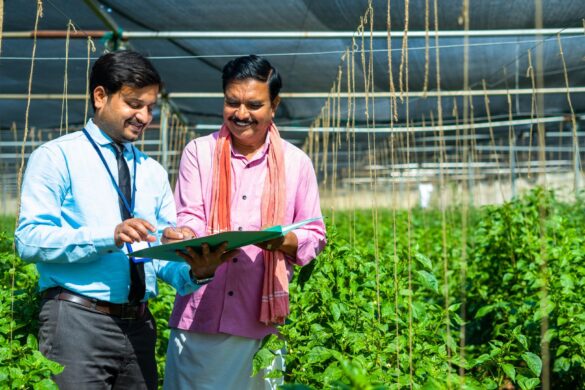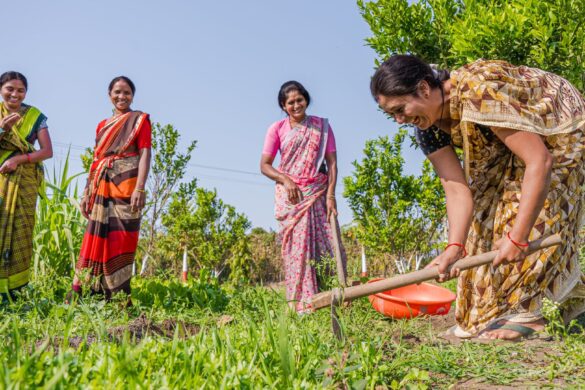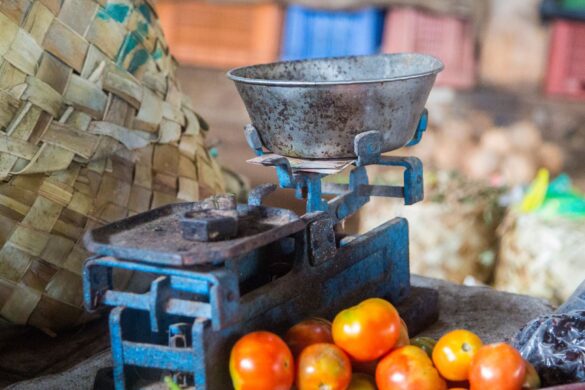Table of Contents
The Ministry of Rural Development (MoRD), Government of India has initiated a national campaign for promoting Integrated Crop Management (ICM) in Natural Farming.
Integrated Crop Management Campaign in Natural Farming was Launched by Shri Charanjit Singh, Additional Secretary, Rural Livelihoods, MoRD on 4th October 2024. The campaign will last 2-week campaign (5th October – 18th October) and aims to promote Natural Farming across India. The objective includes increase in agricultural sustainability and output by the use of natural fertilisers and pesticides, in an cost effective manner.
The ancient traditional wisdom with which the Indian agricultural industry used to thrive has gotten lost post the green revolution. During green revolution focus increased on the yield using synthetic agent and making profits without thinking about the quality of the produce, effects on human health and the environment.
People have now a days again become cautious of what’s been put on their table and the health effects of it. The objective under natural farming is to reduce use of synthetic pesticides and fertilisers. With the age old traditions and techniques, farmers have an option of increasing eco-friendly practices which are balanced, productive as well as sustainable.
Objectives of the Integrated Crop Management Campaign
The primary goal of the integrated crop management campaign is to encourage farmers adopt practices that rely on natural methods like crop rotation and bio-fertilizers. By adopting these natural methods, negative environmental impact done by the conventional methods will reduce over a period of time. This will also increase the soil quality and enhance the nutrient content in it. The natural methods are less expensive and sustainable for the farmers as most of the ingredients are readily available in rural India. Through the adoption of low-cost, natural inputs and better crop yields, the ICM campaign aims to ensure economic sustainability for farmers.
Key Components of Integrated Crop Management under Natural Farming
First, Crop rotation and inter cropping systems can be of great benefits. It is important to encourage farmers to diversify crops they plan to plant and use crop rotation techniques to manage soil fertility and reduce pest pressure. Farmers can plan in a way where they promote beneficial insect populations and reduce pests outbreaks.
Second, Drip irrigation and mulching exercises can help maintain soil moisture. Having natural agents like compost, vermicompost and bio-fertilisers can boost the soil health and structure.
Strategies for Integrated Crop Management and It’s Implementation
Training farmers and building their capabilities for the Integrated Crop Management is the foremost activity that will have to be undertaken for ICM implementation. Field demonstrations, practical sessions, knowledge materials, handouts as well as long term hand holding will form a crucial aspect of it.
Financial incentives are also required for the farmers so they can purchase organic inputs and set up systems like compost pits. Community engagement and community wide adoption will enable long term sustenance of these practices.
Benefits of the Campaign
By promoting use of natural fertilisers and pesticides, natural farming can help reduce the pollution of soil and water bodies caused by excessive chemical use. With reduced dependency on chemical inputs, production cost reduces making farmers more profitable. The crop generated through these practices is organic, more healthy and can fetch a higher price in the markets.
Challenges
Farmers need adequate training to shift from conventional methods to integrated crop management practices effectively. Shifting mindset from using synthetic materials which can give high yield in short duration is a major challenge. Natural farming may initially result in lower yields, which can discourage farmers. Adequate training and myth busting will help farmers adopt best practices under ICM in natural farming.










